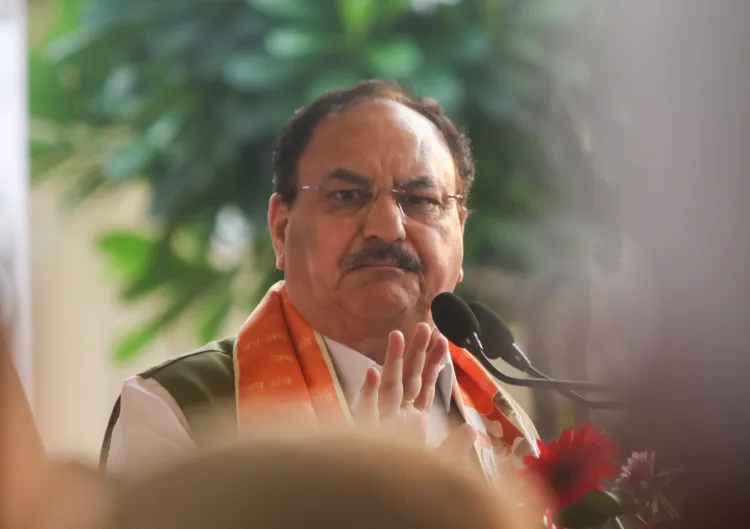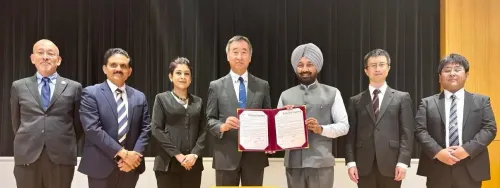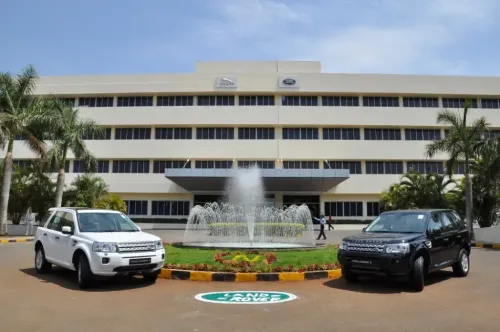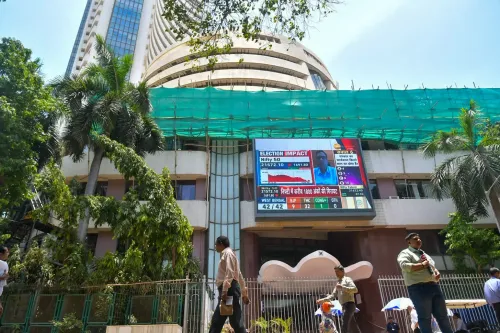How Many Health Camps Have Been Organized Under Swasth Nari, Sashakt Nari?

Synopsis
Key Takeaways
- 9 lakh health camps organized nationwide.
- 3.6 crore individuals screened for health issues.
- Focus on non-communicable diseases.
- Holistic health approach introduced since 2014.
- Government support for institutional deliveries and maternal health.
New Delhi, Sep 29 (NationPress) A staggering nine lakh health camps have been conducted nationwide as part of the 'Swasth Nari, Sashakt Parivar Abhiyaan', according to Union Health Minister JP Nadda on Monday.
During a media briefing in the capital, Nadda highlighted that these health camps have facilitated the screening of over 3.6 crore individuals for various non-communicable diseases, including hypertension, diabetes, and cancers.
“This health initiative was launched on Prime Minister Narendra Modi’s birthday and will continue until Gandhi Jayanti. So far, we've organized 900,000 health camps, each attended by specialists. Approximately 3.6 crore people have been screened, and I am confident that we will exceed 4 crore by October 2,” Nadda stated.
The nationwide health camps have provided screenings for conditions such as hypertension, diabetes, breast cancer, cervical cancer, oral cancer, and anemia.
Additionally, the camps have offered antenatal check-ups, life-saving vaccinations for children, and nutritional guidance for families.
They also conducted screenings for tuberculosis and Sickle Cell Disease, registered blood donors, and issued new Ayushman/PM-JAY cards.
Nadda pointed out that India's health policy has evolved over the past decade, introducing a holistic health approach since 2014.
“In this new approach, we began addressing health by integrating prevention, health promotion, detection, curative, and palliative aspects into our system,” Nadda explained.
In line with this ongoing strategy, the government has established 179,000 Ayushman Arogya Mandirs, which serve as the first point of contact for connecting with 140 crore citizens.
From the moment a woman conceives, ASHA workers begin monitoring their health, maintaining a check-up schedule, and reporting data to the state government.
Nadda also discussed the improvements in institutional delivery rates.
“Our institutional delivery rate has risen from 79 percent to nearly 90 percent. This progress has been made possible by incentivizing ASHA workers. For every mother, delivery is free, along with transportation to and from the institution provided by the government,” he stated.
He also mentioned health initiatives launched by PM Modi, such as the Fit India Movement, POSHAN Abhiyan, and Khelo India, aimed at promoting a healthier lifestyle.
Moreover, the Minister emphasized the positive shift in mental health awareness and how access to high-quality medications has enabled people to lead healthier lives.









